Push Press Workouts to Build Strong Shoulders
These Push Press Workouts will help you build and augment full body strength and explosive overhead power with a barbell.
The Push Press is popular with Olympic Weightlifters, CrossFit® and functional fitness athletes.
You can shift more weight (usually up to 30% more) than with the Military (Strict, Overhead) Press because of recruitment from the core and lower body in order to drive the weight up overhead to the fully locked out position.
The Push Press will improve your strength and balance for other exercises such as the Snatch below…
The push press can increase upper body strength and size due to the large amounts of loads that can be lifted relative to total body strength.
In addition, the push press can be done using a wide array of repetition schemes for muscle growth, power, strength, and endurance, making it an optimal exercise for inclusion in most programs focusing on strength and muscle hypertrophy.
How to Develop Power with the Push Press
The Push Press is one the most effective ways to develop overhead power.
In the Push Press uses the hip flexors, hip extensors (glutes and hams), spinal erectors, and quadriceps all assist the arms in driving the barbell overhead.
The movement requires the movement of power from the core to the extremities (think of the generation and movement of power from the core, through the body, to the hands and feet).
What Muscles Does the Push Press Work?
The push press targets many of the upper body muscles of the shoulder, chest, and triceps, with additional support from the quadriceps and hips (in the dip and drive section). The below muscle groups are targeted primarily by push presses, regardless of modality (barbell, dumbbell, etc.)
Shoulders
Develops the deltoids.
Triceps
Assist the overhead lockout.
Quadriceps and Glutes
Fires the glutes and quads to achieve more power.
Erector Spinae (Lower Back)
Work isometrically to support proper posture and spinal stability throughout this front loaded strength and power movement.
Upper Traps and Scapular Stabilisers
The weight needs to be stabilised overhead, therefore these muscles become stronger.
How to do the Push Press
- Secure the bar in the jerk rack position with the feet at approximately hip-width and the toes turned out slightly.
- Keep the weight balanced on the heels while maintaining full foot contact with the floor.
- Bend slightly at the knees only, keeping the trunk vertical and the weight on the heels.
- Transition immediately at the bottom of this dip and drive aggressively with the legs against the floor to accelerate the barbell upward.
- As you finish the extension of the legs, begin pushing against the bar with the arms, keeping the knees straight and immediately dropping back to flat feet.
- Pull the head back out of the way of the bar to clear a direct path, and push the bar into a fully locked overhead position behind the neck as you would in the jerk.
- As the bar leaves the shoulders, spread the elbows to move them under the bar as soon as possible, and bring the head back forward through the arms as the bar passes it.
Push Press Training Tips
IMPORTANT – If the knees rebend at all after the initial dip and drive, the lift is no longer a push press, but a push jerk.
If the feet remain totally flat during the drive of the legs, the drive is not hard or long enough—the heels will rise at least slightly if the leg drive is adequate. Each rep of multiple-rep sets should begin from a dead stop and the full jerk rack position.
Using your quadriceps (and the glutes) to explosively extend the knees, hips, and ankles (triple extension) to produce force upwards through the load and increase vertical movement to assist the upper body in the lift.
Is Push Press Better than Military Press?
The short answer is that it depends on your goal.
The Military Press will develop strict overhead and upper body strength and muscle. It is a core compound barbell exercise and an excellent strength building movement with the same calibre as the squat, deadlift and bench.
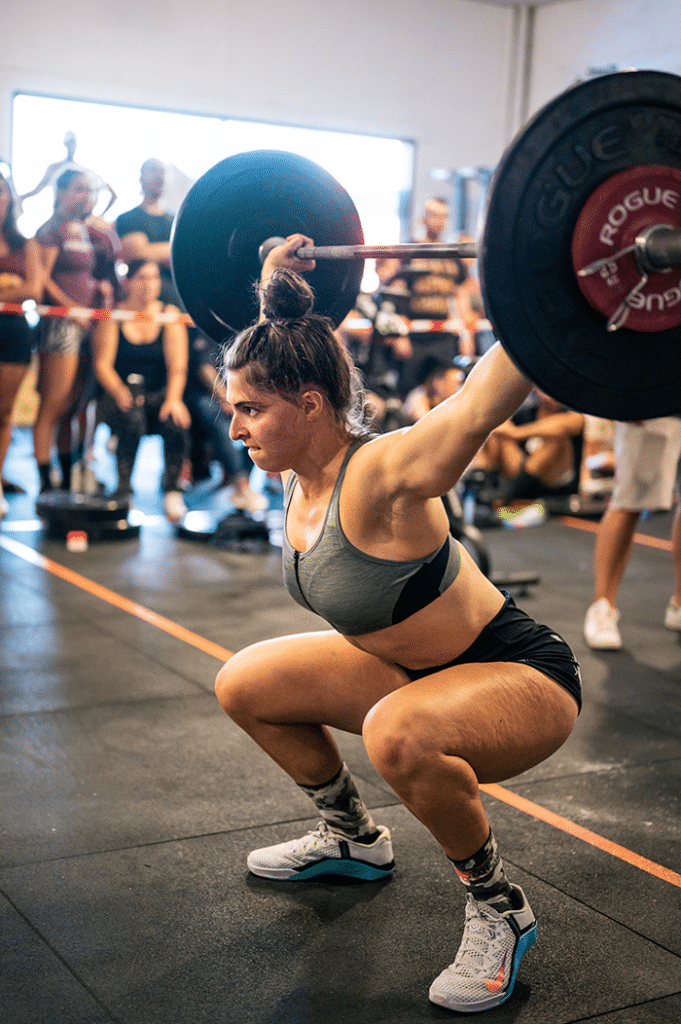
The Push Press will allow you to lift more weight and develop more power. It has great transference for Olympic Weightlifting movements such as the jerk and the wide variations of this that are tested within CrossFit® and functional fitness.
Push Press Workouts
Add these into your training.
WORKOUT 1
AMRAP in 5 minutes
- 10 Push Presses (95/65 lb)
- 10 calorie Row
Accumulate as many reps as possible in 5 minutes.
Score is the total reps in 5 minutes.
Scaling
Beginner weight could be reduced to a dowel due to potential injury with overhead mobility/stability demands.
WORKOUT 2
5 Rounds For Time
- 12 Push Presses (135/95 lb)
- 20 Box Jumps (24/20 in)
WORKOUT 3
EMOM for 5 minutes
- 5 Push Presses (185/135 lb)
- 5 Strict Pull-Ups
WORKOUT 4
Every 2 Minutes For As Long As Possible
- Push Press (75% of 1 rep-max)
- Handstand Push-Up
Start with 1 repetition of each, then add 1 one repetition to each movement every 2 minutes
When the clock starts, perform one push press and one handstand push-up. At the 2:00 mark, perform two of each, then at 4:00 perform three of each. Add one repetition to each movement every two minutes on the minute (E2MOM) and continue for as long as possible until unable to complete the required number of reps within the 2-minute round (similar to “Death By” style workouts).
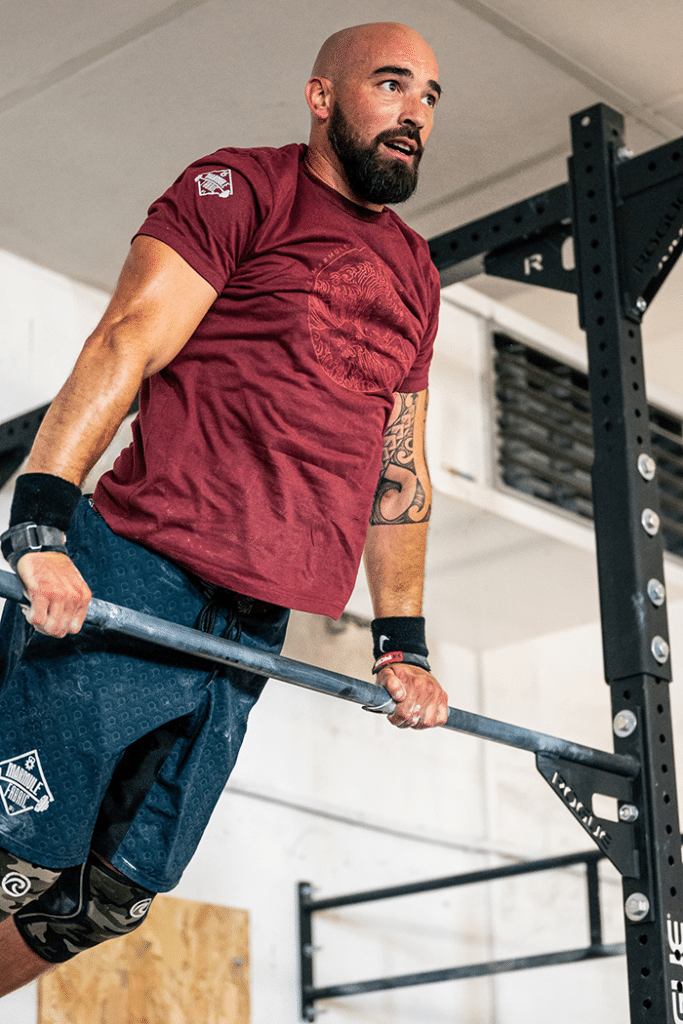
WORKOUT 5
21-15-9 Reps for Time
- Push Presses (135/95 lb)
- Toes-to-Bars
- Take the barbell from the ground. Do not use a rack.
WORKOUT 6
EMOM for 15 minutes
- 2 Push Presses (80% of 1 RM)
- 10 Double-Unders
Every minute on the minute (EMOM) for 15 minutes, perform 2 Push Presses and 10 Double-Under. Rest until the top of the next minute.
Score is the total number of repetitions completed within the 15-minute clock.
WORKOUT 7
AMRAP in 12 minutes
- 2 Chest-to-Bar Pull-Ups
- 2 Push Presses (155/105 lb)
- 4 Chest-to-Bar Pull-Ups
- 4 Push Presses (155/105 lb)
- Etc
Continue with this pattern, adding 2 reps to each movement every round.
On a 12-minute clock, perform as many repetitions as possible (AMRAP) of the prescribed work in the order written. In the first round, athlete must complete 2 Chest-to-Bar Pull-Ups and 2 Push Presses. Continue with this pattern, adding 2 reps to each movement every round.
Score is the total number of repetitions completed before the 12-minute clock stops.
Intended Stimulus
The goal for all of us regardless of how we scale this is to get into the round of 12 at minimum. Our Chest-to-Bar option should be something that we can go unbroken on at least through the round of 8. The loading for the Push Press should be moderately heavy but something that we could perform unbroken at least through the round of 8.
Scaling Options
Chest-to-Bar Pull-Up:
If we have Chest-to-Bar Pull-Ups but cannot string together more than 6 unbroken reps, start at 1 rep, and increase by 1 rep each round. If we are still working towards Chest-to-Bar Pull-Ups, but have regular Pull-Ups, use the lightest band possible to assist you to the full range of motion. If we are still working towards our first Strict Pull-Up, use extra bands to get to the full range of motion. If we are unable to make the overhead pull due to injury, perform Ring Rows.
Push Press:
Scale the load to something that we can get through unbroken at least through the round of 8. If we have an upper-body injury, perform Single-Arm Dumbbell Push Presses. If we are unable to go overhead due to injury, perform a Dumbbell Bench Press.
WORKOUT 8
EMOM for 12 minutes
Odd Minutes:
- 5 Push Presses (155/105 lb)
Even Minutes:
- 5 Deadlifts (155/105 lb)
- Each push press should start from the ground
WORKOUT 9
For Time
- 20 Push Presses (65% of 1 RM)
- 20 Burpees
- 15 Push Presses (70% of 1 RM)
- 15 Burpees
- 10 Push Presses (75% of 1 RM)
- 10 Burpees
- 5 Push Presses (80% of 1 RM)
- 5 Burpees
With a running clock, as fast as possible perform the prescribed work in the order written. The load of the Push Press increases every set while the repetition decreases.
Score is the time on the clock when the last round of push presses is completed.
WORKOUT 10
For Time
- 400 metre Front Rack Lunges (45/35 lb)
*Every 10 lunges, perform:
- 5 Push Presses (45/35 lb)
Perform the front rack lunges unbroken for the whole 400 metres. Every 10 walking lunges, perform 5 push presses in place until you finish the quarter-mile.
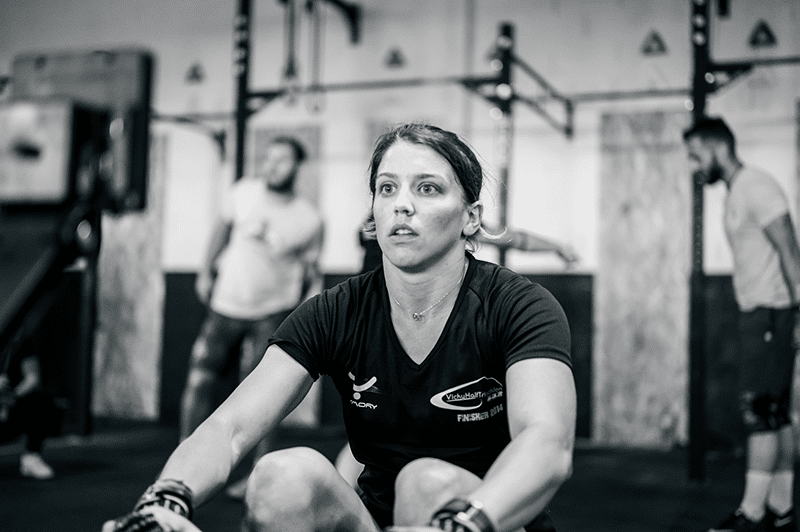
WORKOUT 11
For Time
- 2-4-6-8-10-8-6-4-2 reps of:
- Front Squats (205/135 lb)
- Push Presses (205/135 lb)
Perform the given set of exercises starting with a volume of 2 and increasing at a rate of 2 reps per set until reaching 10 reps then decreasing at a rate of 2 reps until done, in the shortest time possible.
Score in this workout is based on the amount of time taken to complete the prescribed amount of work.
WORKOUT 12
AMRAP in 20 minutes
- 30 Box Jumps (24/20 in)
- 20 Push Presses (115/75 lb)
- 30 Pull-Ups
WORKOUT 13
AMRAP in 20 minutes
- 10 Push Presses (115/85 lb)
- 10 Kettlebell Swings (1.5/1 pood)
- 10 Box Jumps (24/20 in)
On a 20-minute clock, complete as many rounds and repetitions as possible (AMRAP) of the prescribed work in the order written.
Score is the total number of rounds and repetitions completed before the 20-minute clock stops.
Tips and Strategy
Prior to the start, athletes should create a rep scheme they can manage for the entire 20 minutes—and fight hard to stick to the plan. This will ensure a consistent pace, and therefore a better overall score. Here’s an example:
- 10 Push Presses: 6 + 4
- 10 Kettlebell Swings: Unbroken
- 10 Box Jumps: 6 + 4 (rest on top of the box after rep 6)
Intended Stimulus
This relatively long triplet (a workout with three movements) should feel tough yet doable. The load should feel relatively light for the Push Presses and the Swings. The Box height should feel easily clearable.
This workout has three different movements that all require fairly different skills, which makes major muscular fatigue and burnout less of an issue; this will be more of a test of cardiovascular endurance. Pick a strong pace from the beginning and hold on tight to that pace. Remember: The more times the athlete breaks up the Push Presses and Kettlebell Swings, the more they need to pick the load back up off the floor.
Scaling Options
Reduce the weight on the Push Presses/Kettlebell Swings and the lower the Box height as needed so each set of exercises can be completed unbroken or in a max of 2 sets.
Intermediate
Complete as many rounds as possible in 20 minutes of:
- 10 Push Presses (95/65 lb)
- 10 Kettlebell Swings (1.5/1 pood)
- 10 Box Jumps (24/20 in)
Beginner
Complete as many rounds as possible in 20 minutes of:
- 10 Push Presses (65/45 lb)
- 10 Kettlebell Swings (1/.75 pood)
- 10 Box Step-Ups (20/15 in)
WORKOUT 14
7 Rounds for Time
- 5 Push Presses (155/105 lb)
- 10 Kettlebell Swings (32/24 kg)
- 20 Double-Unders
WORKOUT 15
21-15-9 Reps for Time
- Tire Flips (500/300 lb)
- Push Presses (95/65 lb)
- Burpees
WORKOUT 16
For Time
- 21 Push Jerks (185/125 lb)
- 15 Push Presses (155/105 lb)
- 9 Strict Presses (115/80 lb)
Use one barbell, from the ground (no rack). Athlete must change loads.
WORKOUT 17
5 Rounds for Time
Workout 18
For Time
- 15 Strict Presses (80% of 1 rep max)
- 15 Push Presses (80% of 1 rep max)
- 15 Push Jerks (80% of 1 rep max)
- 1 rep max Strict Press
Each repetition begins from the ground.
Workout 19
For Time
- 40 Double-Unders
- 40 Box Step-Ups (24/20 in)
- 40 Push Presses (75/45 lb)
- 30 Double-Unders
- 30 Box Step-Ups (24/20 in)
- 30 Push Presses (75/45 lb)
- 20 Double-Unders
- 20 Box Step-Ups (24/20 in)
- 20 Push Presses (75/45 lb)
- 10 Double-Unders
- 10 Box Step-Ups (24/20 in)
- 10 Push Presses
Workout 20
For Time
- 100 Push Presses (95/55 lb)
Rest 5 minutes
- 75 Back Squats (135/95 lb)
Rest 5 minutes
- 50 Deadlifts (185/135 lb)
With a running clock, as fast as possible perform the prescribed work in the order written.
Score is the time on the clock when the last repetition of deadlifts is completed.
Workout 21 (Team)
5 Rounds for Time (in a team of 4)
Round 1:
- 25 Deadlifts (100/70 lb)
- 15 Thrusters (70/50 lb)
- 5 Push Presses (70/50 lb)
Round 2:
- 20 Deadlifts (100/70 lb)
- 15 Thrusters (70/50 lb)
- 10 Push Presses (70/50 lb)
Round 3:
- 15 Deadlifts (100/70 lb)
- 15 Thrusters (70/50 lb)
- 15 Push Presses (70/50 lb)
Round 4:
- 10 Deadlifts (100/70 lb)
- 15 Thrusters (70/50 lb)
- 20 Push Presses (70/50 lb)
Round 5:
- 5 Deadlifts (100/70 lb)
- 15 Thrusters (70/50 lb)
- 25 Push Presses (70/50 lb)
Complete five rounds of the exercises as quickly as possible in a safe manner. This is a four-person-team, “task-specific” workout. The purpose of this workout is to develop cohesion and combat fitness under fatigue conditions through shared hardship, challenges, and competition.
This workout requires four team members to perform the prescribed work together. If performing the workout with gym equipment, use barbells, and other available equipment. But this workout was designed for military units, so it was originally intended to be done with two .50 cal ammo cans for deadlifts, one 25mm ammo can for thrusters, and one 25mm ammo can for push presses.
Each team member has a specific exercise to perform: he will be doing deadlifts, thrusters, push-presses, or waiting at the rest station.
Once each athlete has completed his required reps of the exercise at each station, the team rotates together so that each athlete is at the next station. This rotation will continue until each soldier has successfully completed five rounds of each exercise. The first round will end when each soldier returns to the station he began at.
Rounds 2 to 5 are executed in the exact same order, with different repetition requirements for the deadlift and push press. Spotting is not permitted at any time.
Push Press Variations
There are many other ways you can perform the Push Press.
Pause Push Press
Alternating Dumbbell Push Press
Single Arm Kettlebell Push Press
Dual Kettlebell Push Press
Single Arm Dumbbell Push Press
Push Press Alternatives
Try these alternative versions of the exercise.
Strict Press
Jump Squat
Handstand Push Ups
Learn More
If you enjoyed these workouts and want to improve your fitness, try these workouts for shoulders and arms or leg exercises.

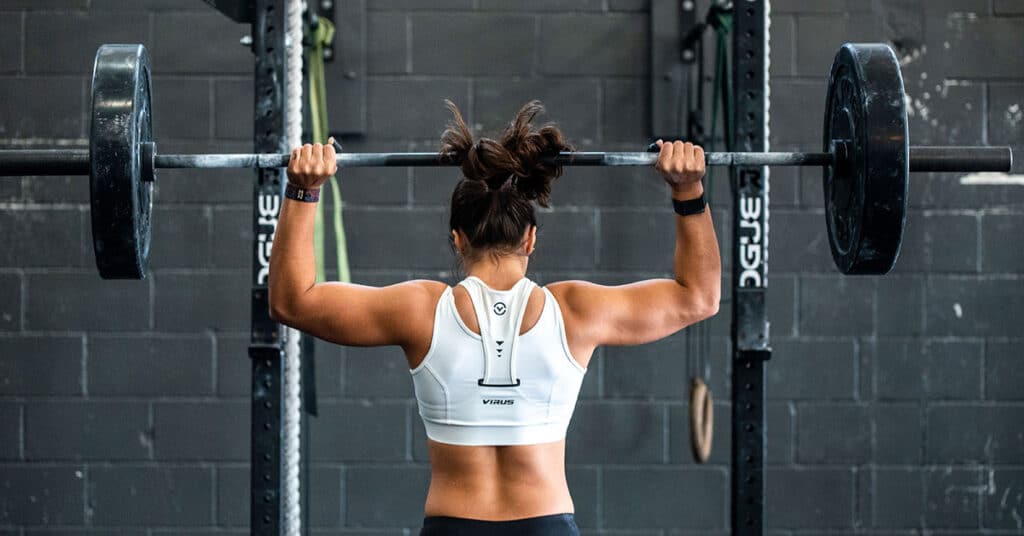
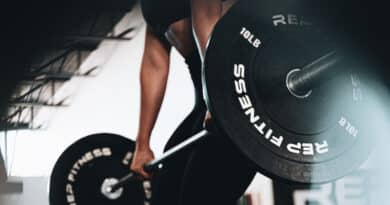


Comments are closed.